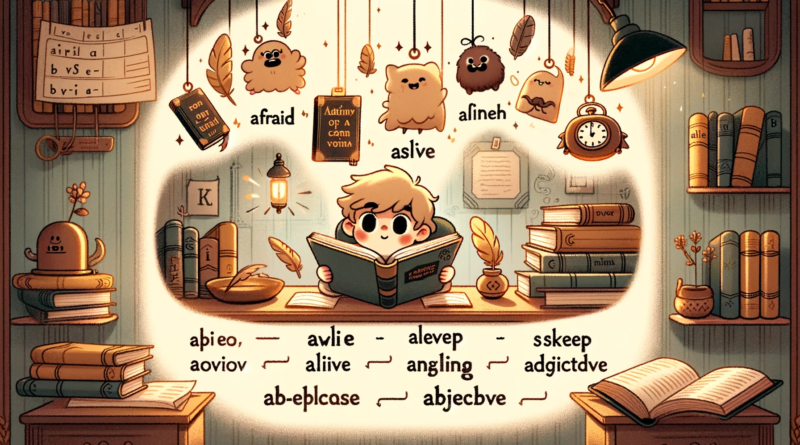Today, I learned an adjective that begin with “a” is a predicative adjective almost all cases.
私は、a で始まる形容詞はほとんど全て叙述用法でのみ使われると学びました。
In the other words, this adjective don’t modify nouns, but is used for a complement.
言い換えれば、名詞を修飾せず、補語としてのみ使用される形容詞です。
For example, afraid, alike, alone, asleep, alive awake, etc.
例えば afraid, alike, alone, asleep, alive, awake などです。
(Of course, there are exceptions such as unable, well, glad, worth, pleased, liable.)
(unable, well, glad, worth, pleased, liable などの例外もあります。)
I became curious, so I searched for them.
少し気になったので、少し詳しく調べてみました。
In Old English, these adjectives had a meaning of progressive, or was a past participle, so they often represent a state.
これらの形容詞は古英語において、進行形の意味を持っていたり、過去分詞であったりしたため、状態を表すことが多いようです。
Also, a progressive form in Old English was represented like “bēon + on + V-ing.”
また、古英語の進行形は、bēon + on + V-ing のように、動名詞の前に on をつけて表していました。
Through Medium English from Old English, prefixes “an-” and “a-” came to be used instead of “on.”
古英語から中英語にかけて on の代わりに接頭辞 an- そして a- が使われるようになり、その名残として alive や asleep があると言われています。
It is said that “alive” or “asleep” is exist as a vestige of that.
これが、a で始まる形容詞が叙述用法で使われる理由です。
This is the reason why an adjective that begin with “a” is a predicative adjective.
また、古英語で現在分詞は bēon + V-ende というように表されており、これが be + V-ing となり、動名詞と現在分詞が組み合わさって現在の進行形が生まれました。
Also, a present participle was represented like “bēon + V-ende” in Old English, and this became “be + V-ing,” and finally, a progressive form “be + V-ing” was born by combining a gerund and a present participle.
あぁ、理論がめちゃくちゃでわかりにくいかもしれません。ごめんなさい。
Ah, I think my sentences are so hard to understand. I’m sorry.

